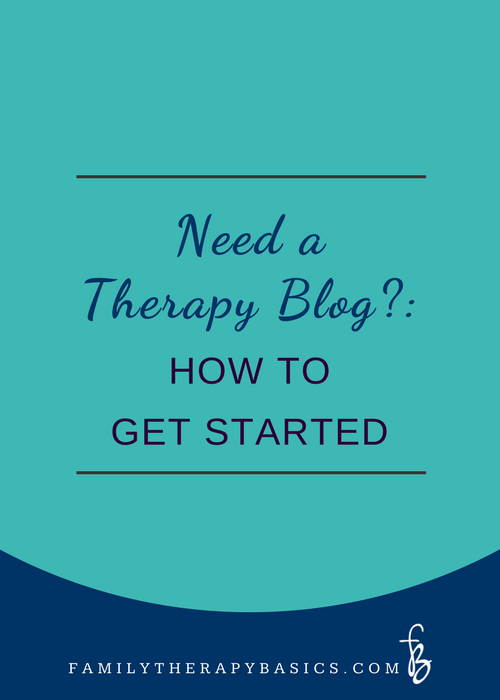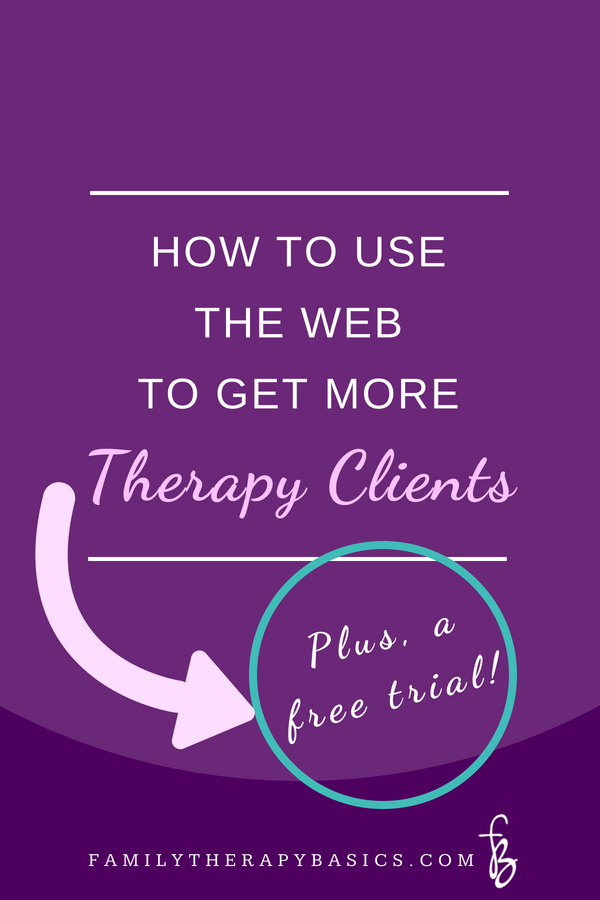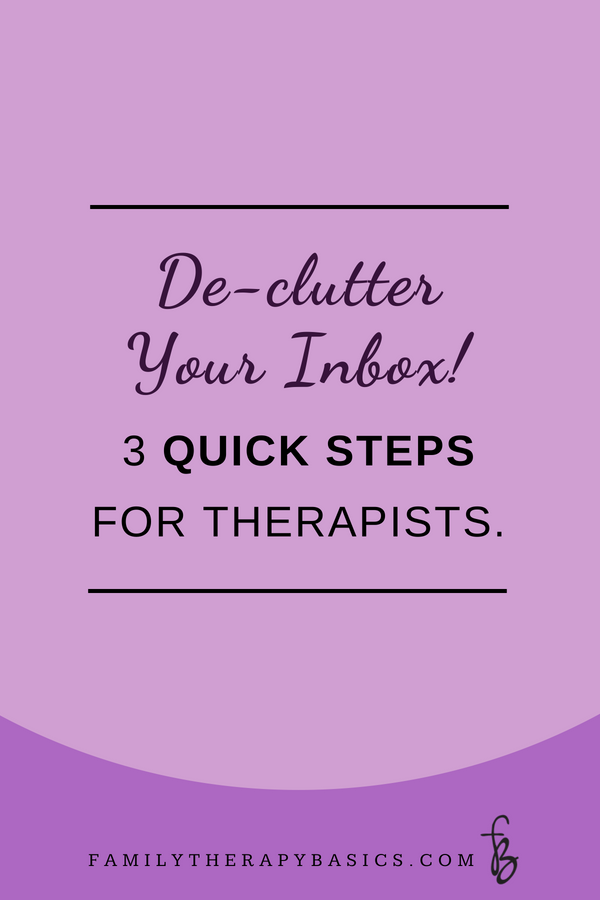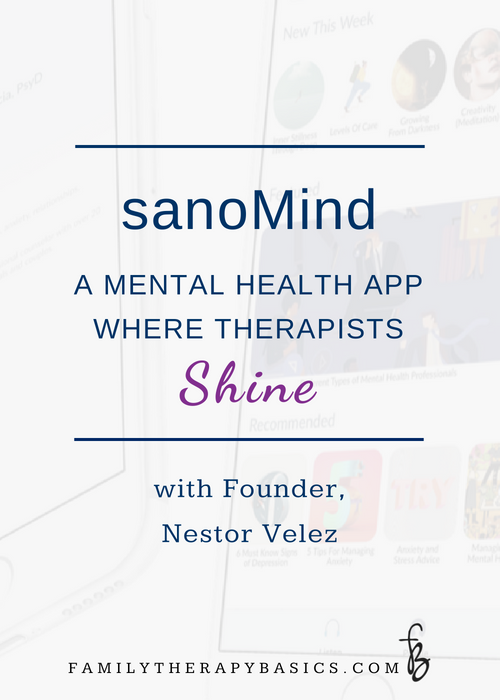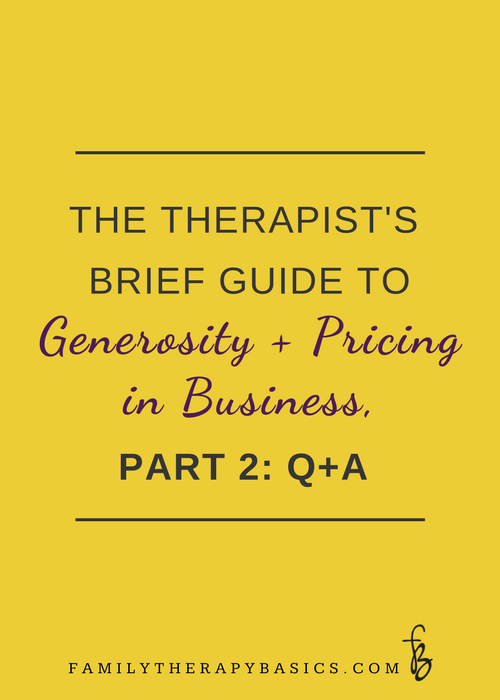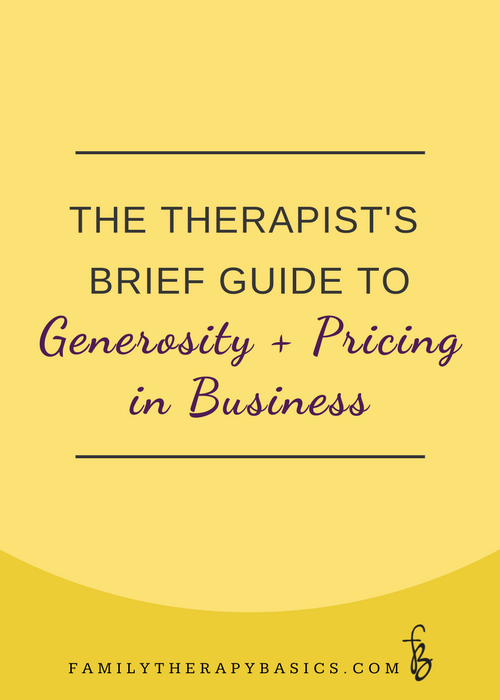I am sure you hear about the benefits of blogging a lot.
Because blogging is still one of the best ways to reach your ideal therapy clients and establish your expertise, it’s worth your consideration.
However, before you read this post, please note: The last thing I want is for you to feel pressure to blog (or to add something else to your to-do list). So, the first thing I’ll ask you is:
Should you start a therapy blog?
Blogging isn't for everyone. It can feel never-ending. It creates a "ticking clock," in a way (which, I’ll discuss later in this post). Blogging also requires consistency and effort, which means it requires your time. While these are legitimate "costs" of blogging, the truth is, everything is an experiment. You can stop blogging any time you want. Blogging may even lead you to realize you want to shift your focus, which means it can help you narrow your professional "sweet spot." For these reasons and others, blogging is valuable for expanding your audience and developing your voice.
Also, you may be in the coveted position of not needing to blog for marketing purposes. For example, I was recently talking with my friend, Ellen, from Sanctuary Christian Counseling, and she explained that she has more clients than she can handle--for herself, as well as therapists in her group practice. She is a Christian couples counselor, practicing in a suburban area, with connections that she's made over three decades of living, working, and volunteering in her town. For Ellen, her in-person networks and relationships have been the bedrock of her business.
Why Blogging Brings Therapy Clients
If you live in an urban area, or in a geographical area saturated with therapists, then niching your therapy services as well as blogging on topics that interest your ideal client will set you apart from the competition.
A Platform for Your Expertise
Blogging consistently will lead to more therapy clients, because you are writing (and sharing) articles on topics that appeal to them; it can also lead to more opportunities, and therefore, income, because your expertise will be available to people and other professionals outside your geographical area. Therefore, blogging is a worthwhile endeavor for you, if you'd like to share a message with a larger audience, whether or not you are in private practice. Conference organizers, podcast hosts, writers, among others, will find you online. This is good for business, and for your career, in general. Blogging expands your reach.
Marketing for Your Therapy Practice, or Services
Blogging will increase traffic to your blog or website through search engine optimization (SEO) as well as any online promotional strategies you employ.Through a tailored online presence that includes blogging, sharing blog posts on social media, and interacting with your online audience, ideal clients will begin to see you as a knowledgeable source of information (as an expert) on their problems and/or goals.
How to Get Started with Blogging
If you're thinking about blogging, or you're just getting started, here are some things to keep in mind:
Before you begin
Blogging is not your only option for increasing your visibility and reaching more people. Additional strategies include educating your target audience via a Youtube channel or Facebook Lives, hosting or being a regular guest on podcasts or radio shows, and guest blogging. Consider your personality, whether you are a writer or a talker, whether your ideal client is a reader or a viewer, as well as the amount of time you can devote to writing regularly before making your decision.
If you decide blogging is the right strategy for you
Prepare for the "ticking clock." Before you publish your blog, write 3-4 blog posts. This will keep you ahead of your chosen blogging schedule and minimize last-minute writing. Also, block blogging time monthly, or weekly, so that you are able to stay ahead of schedule.
If you have a private practice website, blog on the same site. Visitors will be able to peruse your other pages, including information about your therapy services and ways to contact you. (See this post for more tips on how to organize your website.)
Pick a blogging schedule and stick to it. The more frequent and consistent you are with your blog posts, the faster you will generate an audience and see reader engagement. However, having a schedule--any schedule--is what matters most. Whether you blog monthly, or weekly, consistency communicates credibility and encourages trust.
Blog about topics that are relevant to your business, but make sure you're interested in the topics, too. You are busy. Most likely, the last thing you want to be doing is researching a topic you find boring; this will cause blogging to become a burden. Writing for your target clients should be enjoyable (at least most of the time!). It is also a process by which you will develop personally and professionally; you will see these results over time, if you follow your curiosity, interests, and vision.
Keep it simple. Blog posts do not have to be 2,000 words, with a list of references. Share an experience, tell a story from your work, provide a list of resources, summarize a book or article you've read recently. Focus on your ideal client, and know you already know more about therapy (without any research) than s/he knows. You already have knowledge to share.
Summary
Becoming a blogger requires forethought and planning, but, if it's the right option for you, it will increase your visibility by showcasing your therapy expertise. Blogging is an option for reaching your target audience, as well as developing your voice. It allows for creative expression that can lead to insights related to your work, while at the same time engaging your ideal therapy clients.
Some of the ideas in this article were originally sent to News + Notes subscribers.
Let's Chat
For the most part, I publish a blog post on Family Therapy Basics weekly. What question can I answer for you about blogging?

